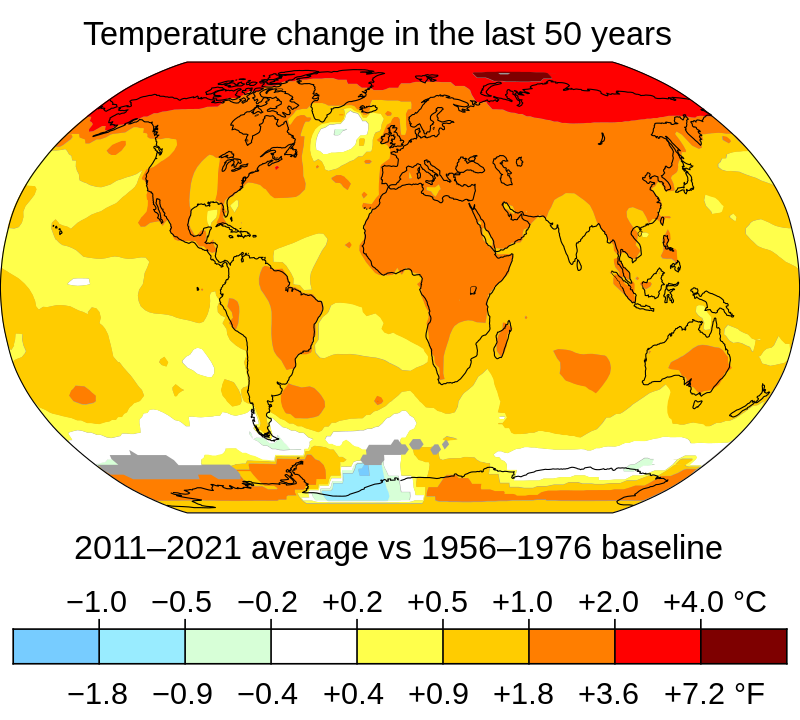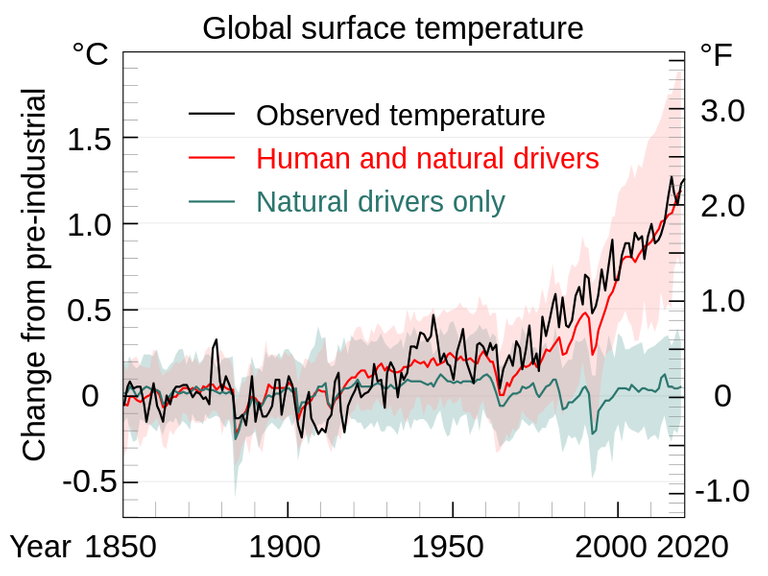
Photo - Wikipedia.org
They notice that the findings, published today in the journal One Earth, add urgency to the need to reply to the local weather disaster and grant a roadmap for policymakers aiming to avert the most severe penalties of a warming planet.
In local weather science, amplifying comments loops are situations where a climate-caused alteration can trigger a technique that reasons even greater warming, which in turn intensifies the alteration. An example would be warming in the Arctic, main to melting sea ice, which effects in further warming due to the fact sea water absorbs rather than displays photo voltaic radiation.
OSU College of Forestry postdoctoral scholar Christopher Wolf and amazing professor William Ripple led the study, which in all seemed at forty one climate alternate feedbacks.
"Many of the comments loops we examined considerably increase warming due to the fact of their connection to greenhouse gas emissions," Wolf said. "To the pleasant of our knowledge, this is the most tremendous list handy of local weather remarks loops, and no longer all of them are entirely considered in climate models. What's urgently wished is greater lookup and modeling and an accelerated cutback of emissions."
The paper makes two calls to motion for "immediate and massive" emissions reductions:
Minimize momentary warming given that "climate disasters" in the form of wildfires, coastal flooding, permafrost thaw, excessive storms and other severe climate are already occurring.
Mitigate the feasible main threats looming from local weather tipping factors that are drawing ever-closer due to the occurrence of the many amplifying feedback loops. A tipping point is a threshold after which a alternate in a component of the local weather system becomes self-perpetuating.
"Transformative, socially just modifications in global electricity and transportation, short-lived air pollution, food production, nature upkeep and the global economy, together with population insurance policies based on education and equality, are needed to meet these challenges in each the quick and long term," Ripple said. "It's too late to utterly forestall the ache of climate change, but if we take meaningful steps quickly whilst prioritizing human fundamental wants and social justice, it should still be viable to restriction the harm."

Photo - Wikipedia.org
Ripple, Wolf and co-authors from the University of Exeter, the Potsdam Institute for Climate Impact Research, the Woodwell Climate Research Center and Terrestrial Ecosystems Research Associates viewed both biological and bodily feedbacks. Biological feedbacks encompass wooded area dieback, soil carbon loss and wildfire; physical feedbacks contain modifications such as reduced snow cover, accelerated Antarctic rainfall and shrinking arctic sea ice.
Even comparatively modest warming is predicted to heighten the probability that the Earth will go more than a few tipping points, the researchers say, causing huge changes in the planet's climate device and doubtlessly strengthening the amplifying feedbacks.
"Climate fashions can also be underestimating the acceleration in global temperature exchange due to the fact they aren't wholly considering this massive and associated set of amplifying remarks loops," Wolf said. "The accuracy of climate fashions is vital as they assist guide mitigation efforts by using telling policymakers about the expected results of human-caused greenhouse gas emissions. While recent local weather fashions do a an awful lot better job of incorporating diverse remarks loops, extra development is needed."
Emissions have risen significantly over the last century, the researchers note, no matter various a long time of warnings that they should be extensively curbed. The scientists say interactions amongst comments loops could cause a everlasting shift away from the Earth's modern local weather country to one that threatens the survival of many human beings and other lifestyles forms.
"In the worst case, if amplifying feedbacks are sturdy enough, the end result is likely tragic local weather exchange that's moved beyond whatever human beings can control," Ripple said. "We need a fast transition towards integrated Earth system science because the local weather can solely be totally understood with the aid of considering the functioning and kingdom of all Earth structures together. This will require large-scale collaboration, and the end result would provide better records for policymakers."
In addition to the 27 amplifying climate feedbacks the scientists studied have been seven that are characterised as dampening -- they act to stabilize the climate system. An example is carbon dioxide fertilization, the place rising concentrations of atmospheric CO2 lead to increasing carbon uptake through vegetation.
The outcomes of the ultimate seven feedbacks, such as improved atmospheric dirt and reduced ocean stability, are now not yet known.
References
William J. Ripple, Christopher Wolf, Timothy M. Lenton, Jillian W. Gregg, Susan M. Natali, Philip B. Duffy, Johan Rockström, Hans Joachim Schellnhuber. Many risky feedback loops amplify the need for climate action. One Earth, 2023